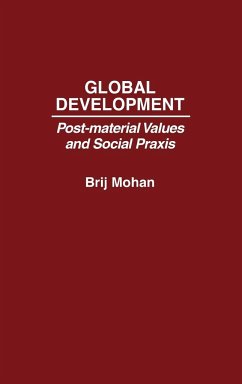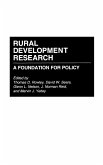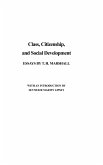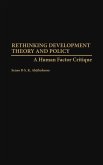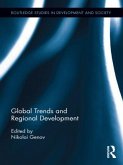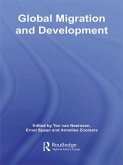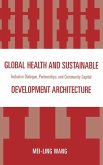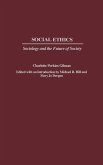This intriguing book's focus on post-material consciousness, a concept that has not been developed in American literature, offers a fresh perspective on the human condition and its social development as a vehicle of global welfare. Brij Mohan contends that post-modern societies, despite their affluence and the superpower thaw, remain in a state of flux, and that the traditional approaches on the Left and Right have failed to present a viable program for peace, development, and prosperity. Mohan's formulation is premised on three assumptions: existing ideologies, theories, and practices of national and international development are fraught with contradictions and anomalies; the world climate and its challenges call for a new thinking beyond bureaucratized disciplines; and post-material consciousness lends support to a bio-global strategy that is conceptually compatible with humankind's ultimate agenda for coexistence based on justice, equality, and peace. Part One deals with theoretical considerations in light of contemporary social events, and Part Two offers comparative analyses of three different societies--the United States, Germany, and India--with a particular emphasis on social development issues. Concepts such as end of history, end of ideology, and even third world are called into question. Global Development, premised on the notion of humanity's one-ness, unravels the paradoxes of diversity and offers a rational, humane basis for a dignified existence of the human race beyond the ossified structures of conceptual boundaries and organizational morass.
Hinweis: Dieser Artikel kann nur an eine deutsche Lieferadresse ausgeliefert werden.
Hinweis: Dieser Artikel kann nur an eine deutsche Lieferadresse ausgeliefert werden.

